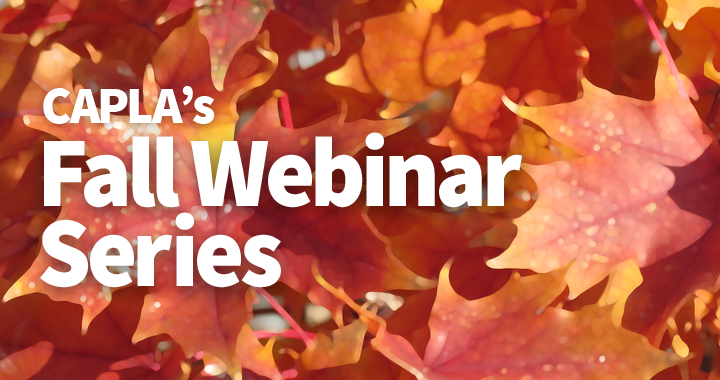Register for
RPL and the Future of Work Webinars
Our webinars are designed to give participants concrete tools and strategies that you can use to incorporate PLAR/RPL into your own practice. This fall’s series, “RPL and the Future of Work,” explores the role PLAR/RPL can play in your own career development, as well as in your clients’ or students’. These sessions will be of use to everyone, but especially if you work in the career services world.
The webinars consist of 1 hour of presentations and then 25-minute break-out rooms to dive deeper into the subject matter with presenters.
Webinar 1: November 5: Putting RPL into Career Development Practice
Webinar 2: November 12: RPL for Workforce Development
Webinar 3: November 19: Recognizing your Inner Advisor
As in other years, you can register for one session or all three. And since all our sessions are on Zoom, video recordings and resources will be sent to you if one of the dates becomes problematic and for future reference. Become a CAPLA Member to receive discount prices on these webinars.
Webinar 1
Putting RPL into Career Development Practice
Wednesday, November 5, 2025 | 12:00 noon – 1:30 pm (Eastern)
This session explores the use of RPL in career advising.
1: Hidden Credits: How Recognition of Prior Learning Fuels CCDP Career Journeys
Presenter: Lindsay Guitard, Registrar and Manager, Career Certification, NSCDA
Recognition of Prior Learning (RPL) makes the invisible visible, turning the lived and professional experiences of Career Development Practitioners into recognized competencies that support certification and continued growth. Within the CCDP program, RPL plays a vital role in helping practitioners map their knowledge, skills, and experience to national standards, transforming what they’ve already accomplished into formal recognition and career advancement.
As Canada’s career landscape evolves amid rapid economic change, RPL offers more than a pathway to certification. It is a framework for lifelong learning. This session explores how CCDPs can leverage RPL not only to achieve certification but also to maintain and expand it through meaningful, self-directed professional development. Together, we will explore how recognizing experience fuels confidence, competence, and career mobility in an ever-shifting world of work.
2: From Experience to Evidence: How RPL Elevates Career Development
Presenter: Elizabeth Nicholas, Virtual Employment & Education Specialist, Trenton Military Family Resource Centre
The field of Career Development is evolving, and so are the expectations of the clients we serve. Harnessing tools to fortify your practice has never been more important. More than just an academic tool, Recognition of Prior Learning (RPL) transforms everyday career conversations, revealing hidden potential while strengthening client confidence.
3: Hidden Sector, Hidden Talent: Career Development and Prior Learning Communities in Canada
Presenter: Barbara Wilson, CCDP, Consulting Director, Challenge Factory
In 2023, Challenge Factory published groundbreaking research that identified who Canadians turn to for career, education, and employment advice and guidance. The findings revealed the breadth and depth of a robust, but hidden sector. This session will reveal where Prior Learning fits within this eco-system, who we can forge stronger relationships with, and how to ensure our impact is brought into the light.
About the speakers

Lindsay Guitard
Registrar and Manager Career Certification,
NSCDA
Lindsay is the Registrar and Manager of Canada’s first National Career Development Certification Program, where she leads certification governance, stakeholder engagement, and policy alignment with national standards. With over 20 years of leadership experience in career development, healthcare, and non-profit governance, she has consistently advanced initiatives that strengthen professional practice and recognition of prior learning.
Read more
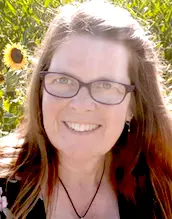
Elizabeth Nicholas
Virtual Employment & Education Specialist,
Trenton Military Family Resource Centre
Elizabeth Nicholas, Career Specialist and host of the Your Employment Detective Podcast, has a background in marketing and holds designations in Human Resources, PLAR Advising and Assessing, Hope-Action Theory and Practice, and Career Development.
Read more
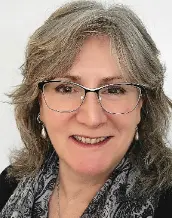
Barbara Wilson, CCDP
Consulting Director
Challenge Factory
Barbara is a seasoned consultant and certified career development practitioner with 25+ years’ experience in learning, talent development, leadership, and career development. At Challenge Factory, she drives impactful, human-centric solutions for organizations across private and public sectors.
Webinar 2
RPL for Workforce Development
Wednesday, November 12, 2025 | 12:00 noon – 1:30 pm (Eastern)
This session explores the use of RPL to develop the workforce and enhance businesses’ effectiveness.
1: Empowering Worker Development Through RPL: Industry Examples
Presenter: Dan McFaull, Managing Partner and Taruna Goel, Senior Consultant and RPL Strategist, North Pacific Metrics Inc. and Taruna Goel, Senior Consultant and RPL Strategist, North Pacific Metrics Inc.
By assessing and validating existing competencies, Recognition of Prior Learning (RPL) offers practical, competency-based pathways for individual career growth and workforce development. This session will highlight two recent sector-driven initiatives applying RPL tools to address urgent skills shortages for the Nova Scotia Automotive Sector Council (2020–2024). The session will focus on the creation of RPL certification pathways for Tire and Maintenance Technicians and Collision Preppers, supporting uncredentialed workers to gain recognition and achieve industry certification.
The presentation will outline how these tools and pathways were designed and applied in industry, and will include lessons learned about embedding RPL within workforce development strategies. Breakout room discussions will give participants the opportunity to ask questions, share insights, and explore how similar approaches could be applied in their own sectors.
2: The Coming Storm. Leading a Paradigm Shift in Learning
Presenters: Dr. David J. Finch, Professor, Bissett School of Business. Mount Royal University
Canada has developed an exceptional human capital system, one that reflects the past rather than the present or the future. As a result, the human capital system that has sustained our province’s social and economic prosperity over the past 120 years doesn’t possess the capacity to lead Canada into the future. The solution is not as simple as spending more money; the future demands a paradigm shift in how Canada develops its human capital.
The first step is to detach from the current model and ask a fundamental question: What is the most effective way to unlock the full productivity of all Canadians?
Over the past year, our multidisciplinary team of researchers and industry experts at The Productivity Project has explored this question through a six-part report series titled “Productivity and People.” We conclude that Canada must adopt a new learning paradigm—one that unbundles learning from credentials and embraces “open learning.” Like open innovation in technology, open learning recognizes that education happens everywhere: in workplaces, communities, and self-directed environments. It transforms education from a one-way ladder into a dynamic climbing wall of limitless pathways. By embracing open, lifelong learning ecosystems and dismantling legacy silos between policymakers, employers, and educators, Canada can unlock the full productivity potential of its people and secure long-term prosperity.
For additional reading, refer to the six-part report series, Productivity & People, available here.
About the speakers
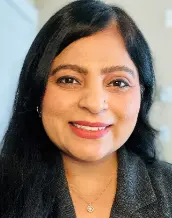
Taruna Goel, MBA, BSc, CACE
Senior Consultant and Strategist (PLAR/RPL & Competence Development), North Pacific Metrics, Inc.
Taruna Goel is a Learning and Development professional with over 25 years of experience in adult education, workplace training, instructional design, competency development & assessment, and performance improvement.
Read more
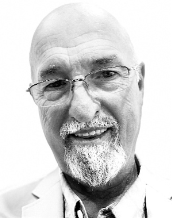
Dan McFaull, MBA, MEd, BA
Managing Partner
North Pacific Metrics Inc.
Dan McFaull specializes in designing and developing occupational qualification, licensing and certification tools and systems. With a thirty-year career in the field of human performance, assessment and instruction, Dan has worked as a consultant, instructional designer and facilitator. Dan is an experienced project manager and has organized and led teams of specialists in the successful delivery of multi-year, multi-million dollar projects. He is skilled in solving business and industry problems with performance solutions.
Read more

Dr. David J. Finch, Ph.D
Professor, Bissett School of Business
Mount Royal University
Dr. David J. Finch holds a Ph.D. in management and is an active educator, scholar, and practitioner. He has numerous academic appointments, including Professor at the Bissett School of Business at Mount Royal University and Visiting Fellow at the Henley Business School, University of Reading (UK). He has also taught at the University of Calgary and Ohio University.
Read more
Webinar 3
Recognizing your Inner Advisor
Wednesday, November 19, 2025 | 12:00 noon – 1:30 pm (Eastern)
This session explores the RPL knowledge, skills and abilities of advisors.
1: The Recognition Practices Occupational Framework: Developing the “recognition function” within organisations
Presenter: Serge Ravet, President of Reconnaître—Open Recognition Alliance
At the ePIC 2025 conference, three landmark documents were presented that together provide a holistic vision of recognition: the Open Recognition Manifesto (principles), the French ISO/AFNOR standard on Dispositifs Ouverts de Reconnaissance (organisational approach), and the Recognition Practices Occupational Framework (practices).
This presentation will focus on the Occupational Framework, which explores how organisations can embed the “recognition function” into their daily operations. It identifies functions, roles and practices that make recognition a living, distributed process—connecting principles to structures, and structures to practice.
2: Recognizing RPL Practitioners: Findings from the CAPLA/ONCAT Research Project
Presenter: Dan McFaull, Managing Partner and Taruna Goel, Senior Consultant and RPL Strategist, North Pacific Metrics Inc. and Taruna Goel, Senior Consultant and RPL Strategist, North Pacific Metrics Inc.
This session will present findings from our recently completed CAPLA/ONCAT research. This nationwide study engaged a multi-sectoral environmental scan to assess the professional development needs of PLAR/RPL workers. The primary goal of the study was to understand the demand, perceived value, and desired benefits of professional development for RPL workers, leading to recognition of their knowledge, skills, and abilities. The research also explored the extent to which employers would value and support RPL professional development opportunities.
Results from surveys and focus groups will be presented, and the audience will be invited to share their thoughts and reactions. The session will also explore the need for further research into existing professional development opportunities and the prospect of formal recognition of RPL workers’ competencies.
About the speakers

Serge Ravet
President of Reconnaître—Open Recognition Alliance
Serge Ravet has built his career at the intersection of critical digital innovation and emancipatory practices. He coined the concepts of “Open Recognition” and “recognition capital” to articulate a vision that restores agency and legitimacy to non-formal and community-driven recognition practices—too often marginalised or overlooked by institutional frameworks.
Read more

Dan McFaull, MBA, MEd, BA
Managing Partner
North Pacific Metrics Inc.
Dan McFaull specializes in designing and developing occupational qualification, licensing and certification tools and systems. With a thirty-year career in the field of human performance, assessment and instruction, Dan has worked as a consultant, instructional designer and facilitator. Dan is an experienced project manager and has organized and led teams of specialists in the successful delivery of multi-year, multi-million dollar projects. He is skilled in solving business and industry problems with performance solutions.
Read more

Taruna Goel, MBA, BSc, CACE
Senior Consultant and Strategist (PLAR/RPL & Competence Development), North Pacific Metrics, Inc.
Taruna Goel is a Learning and Development professional with over 25 years of experience in adult education, workplace training, instructional design, competency development & assessment, and performance improvement.
Read more

